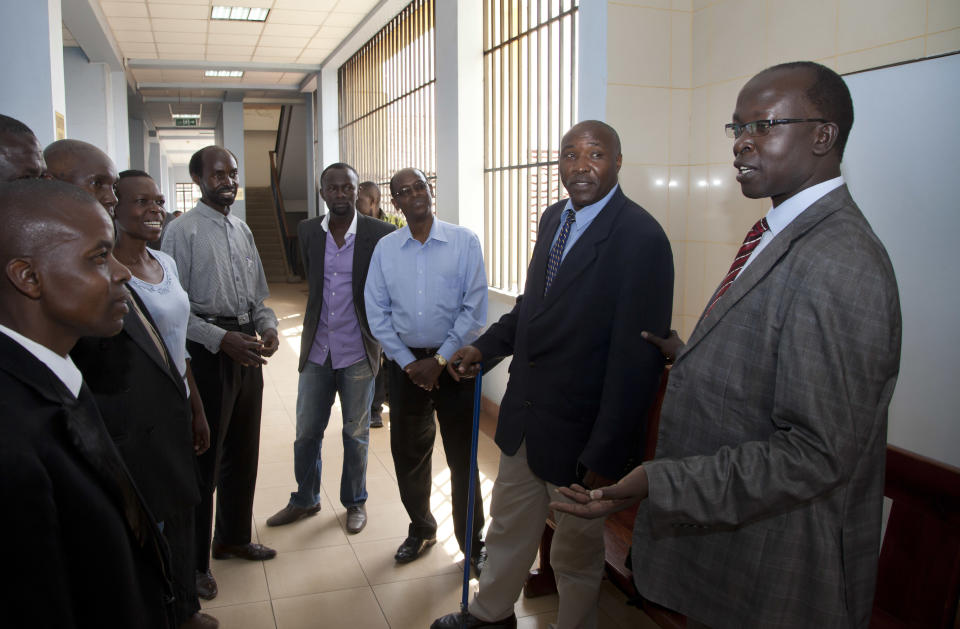Kenyan court: ICC can arrest journalist
NAIROBI, Kenya (AP) — A Kenyan court Friday refused to stop the arrest of a journalist wanted by the International Criminal Court for allegedly interfering with prosecution witnesses in the crimes against humanity case against Kenya's Deputy President William Ruto.
Journalist Walter Barasa has 14 days to appeal after which Kenya's Internal Security Ministry can arrest and extradite him to The Hague-based court.
Barasa did not demonstrate how his constitutional rights will be violated and that he is likely to suffer oppression and discrimination if arrested, said Judge Richard Mwongo when he declined to stop the arrest.
ICC prosecutor Fatou Bensouda said the court expects that Kenya's government will take all necessary steps so that Barasa can be arrested and surrender to the ICC without delay to face charges for attempted obstruction of justice.
ICC Judge Cuno Tarfusser had issued a warrant for Barasa, 41, in October on suspicion of attempting to bribe a potential witness.
"The evidence collected so far indicates that there is a network of people who are trying to sabotage the case against Mr. Ruto ... by interfering with prosecution witnesses," Bensouda had said in October. "Walter Barasa, against whom compelling evidence has been collected, has been part of this network, and his actions fit into this wider scheme that the (prosecutor's) office continues to investigate."
Bensouda had said she hopes Barasa's arrest warrant will serve as "a warning to others who may be involved in obstructing the course of justice through intimidating, harassing, bribing or attempting to bribe ICC witnesses ... My office will continue to do everything it can to ensure that witnesses are able to present their evidence before the court without fear."
If convicted, Barasa could face a prison sentence of up to five years.
Ruto, Kenya's President Uhuru Kenyatta and radio broadcaster Joshua Sang face crimes against humanity charges for allegedly orchestrating post-election violence which killed more than 1,000 people following a disputed presidential election in late 2007. They all deny the charges.
Ruto's trial continued this week but the case against Kenyatta may collapse because witnesses are withdrawing. Kenyatta's trial was to start in November but was postponed to February after the prosecution and defense teams said they needed more time to prepare.
The ICC prosecutor in December requested court for an additional three month adjournment after one witness withdrew and another admitted giving false evidence. At the time, Bensouda said she needed time to reconsider her case.
On Feb. 5 the ICC judges will consider the prosecutor's request for the adjournment as well as Kenyatta's request to have the case thrown out altogether.
____
Associated Press Writer Mike Corder contributed to this report from The Hague


